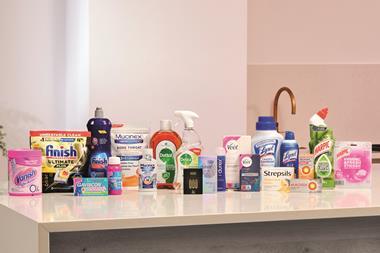from Dr Danny McKillop, independent consultant
Sir; Usually, when a scientist reads an opinion, their response is to look at the facts and question interpretations.
For example, I read the voluminous media coverage surrounding the report on the effects of genistein on sperm and understood it to mean that one more chemical had been added to the long list for which there is evidence of possible effects on reproduction.
This certainly raises questions - does a soya-rich diet lead to any increase in genistein in the reproductive tract and are there any serious negative results if it does? The results found so far justify a look at epidemiological evidence to probe for evidence that those who consume a soya-rich diet are less fertile.
Usually, scientists understand that life can be contradictory, that a reasonable amount of red wine is good, too much is bad.
There is also legitimate room for debate about how to minimise pesticide residues, what risk residual levels pose and what the economic balances are. I don’t always agree with my scientific colleagues, but I mostly respect them and am proud to be numbered among them.
Would I be capable of the same pride if I were a journalist? Your Opinion (The Grocer, June 25, p26) seems to suggest that your greyscale is of somewhat low resolution. The media love any food scare. A hint of a possibility of a problem becomes a headline and the headline is the next story.
You question whether the government should base decisions on science. Of course it should. It must be good science and it must be interpreted with an understanding of the scientific process and a healthy scepticism, but do you have an alternative?
Maybe you would prefer governments to make decisions based solely on the opinion of editors and moguls.
One final point: I have checked and neither Professor Lynn Fraser (who conducted the soya research) nor myself have pointy heads.
Sir; Usually, when a scientist reads an opinion, their response is to look at the facts and question interpretations.
For example, I read the voluminous media coverage surrounding the report on the effects of genistein on sperm and understood it to mean that one more chemical had been added to the long list for which there is evidence of possible effects on reproduction.
This certainly raises questions - does a soya-rich diet lead to any increase in genistein in the reproductive tract and are there any serious negative results if it does? The results found so far justify a look at epidemiological evidence to probe for evidence that those who consume a soya-rich diet are less fertile.
Usually, scientists understand that life can be contradictory, that a reasonable amount of red wine is good, too much is bad.
There is also legitimate room for debate about how to minimise pesticide residues, what risk residual levels pose and what the economic balances are. I don’t always agree with my scientific colleagues, but I mostly respect them and am proud to be numbered among them.
Would I be capable of the same pride if I were a journalist? Your Opinion (The Grocer, June 25, p26) seems to suggest that your greyscale is of somewhat low resolution. The media love any food scare. A hint of a possibility of a problem becomes a headline and the headline is the next story.
You question whether the government should base decisions on science. Of course it should. It must be good science and it must be interpreted with an understanding of the scientific process and a healthy scepticism, but do you have an alternative?
Maybe you would prefer governments to make decisions based solely on the opinion of editors and moguls.
One final point: I have checked and neither Professor Lynn Fraser (who conducted the soya research) nor myself have pointy heads.
















No comments yet